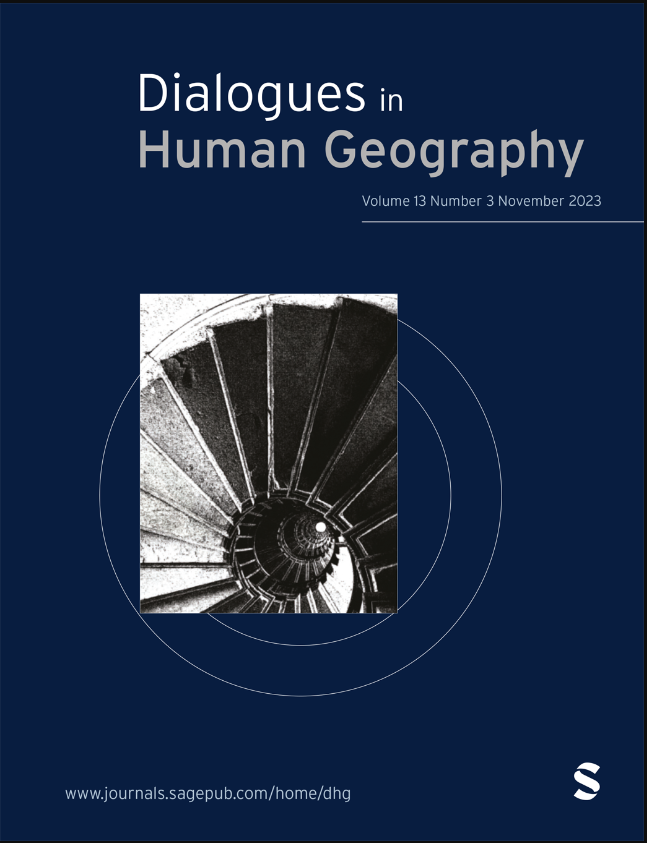喧嚣的语言:地点、历史和路径
IF 8.2
1区 社会学
Q1 GEOGRAPHY
引用次数: 1
摘要
在这篇评论中,我引用了James Sidaway最近的一篇文章,“超越非殖民化:关键的穆斯林地理学”。我通过提出两个相互关联的问题来回应它的贡献和挑衅。首先,语言在这些重要的穆斯林地区的地位是什么?我建议地理学家应该将他们对关键术语的参与置于他们的背景中,这一项目使“din”等术语如何被视为穆斯林地理学的核心部分变得复杂。其次,我要问我们如何理解穆斯林地区的“穆斯林”。我们对这个问题的回答会影响我们如何理解实践和分析的范畴。本文章由计算机程序翻译,如有差异,请以英文原文为准。
Languages of din: Place, history, and paths
In this commentary, I engage with James Sidaway's recent article, ‘Beyond the Decolonial: Critical Muslim Geographies’. I respond to its contributions and provocations by asking two linked questions. First, what is the place of language in these critical Muslim geographies? I suggest that geographers should situate their engagement with key terms in their contexts, a project that complicates how terms like din are taken to be a core part of Muslim geographies. Second, I ask how we are to understand the ‘Muslim’ of Muslim geographies. Our answer to that question has consequences for how we understand our categories of practice and analysis.
求助全文
通过发布文献求助,成功后即可免费获取论文全文。
去求助
来源期刊

Dialogues in Human Geography
GEOGRAPHY-
CiteScore
8.00
自引率
4.00%
发文量
86
期刊介绍:
Dialogues in Human Geography aims to foster open and critical debate on the philosophical, methodological, and pedagogical underpinnings of geographic thought and practice. The journal publishes articles, accompanied by responses, that critique current thinking and practice while charting future directions for geographic thought, empirical research, and pedagogy. Dialogues is theoretically oriented, forward-looking, and seeks to publish original and innovative work that expands the boundaries of geographical theory, practice, and pedagogy through a unique format of open peer commentary. This format encourages engaged dialogue. The journal's scope encompasses the broader agenda of human geography within the context of social sciences, humanities, and environmental sciences, as well as specific ideas, debates, and practices within disciplinary subfields. It is relevant and useful to those interested in all aspects of the discipline.
 求助内容:
求助内容: 应助结果提醒方式:
应助结果提醒方式:


